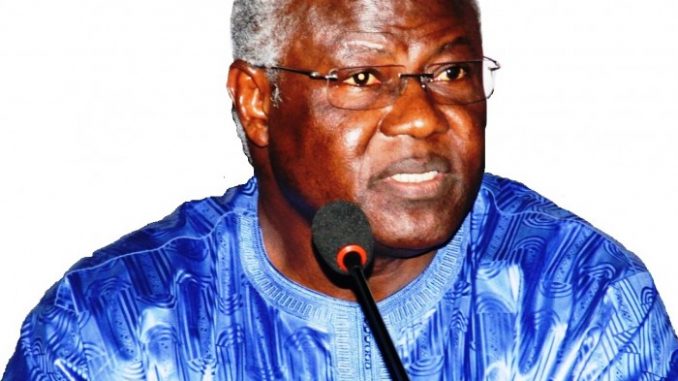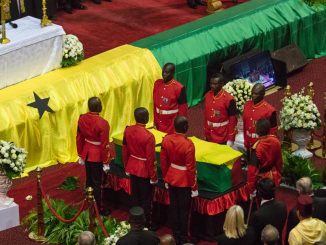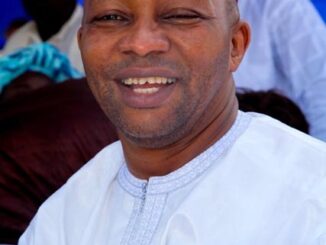
John Baimba Sesay- CHINA
The world, writes Jean-Robert Leguey-Feilleux in ‘The Dynamics of Diplomacy,’ has undergone spectacular alteration. “Some traditional forms of diplomacy”, the writer believes, “are losing their prominence. Our complex global society has turned to new means of interaction to address international problems…”
In contemporary diplomacy, pursuing economic diplomacy helps in promoting a country’s trade, which is enhanced by promotion of inward investments. The need to efficiently utilize economic diplomacy in advancing a country’s outside fiscal interests cannot be overstated.
Attraction of foreign investments, writes P. Baranay in ‘Modern Economic Diplomacy’ is an essential issue of economic diplomacy. Economic diplomacy pursues a number of objectives, amongst them networking and ensuring proper mobilisation in areas of trade and investment promotion.
Sierra Leone is a global player, today contributing to regional peace and stability through the contribution of peace-keeping troops to war-torn nations. It chairs the C-10, leading the advocacy for a reform of the UN Security Council, making it a global voice.

President Koroma: building Sierra Leone economic ties
As a country, it continues to scale up activities of her embassies abroad, having people with specific responsibilities on commerce and the private sector (as in China and Nigeria, amongst other having Trade Attachés), Defense (just recently in China with the arrival of a Defence Attaché) and other specialized areas.
The appointments of these Trade and Defence Attachés, President Ernest Koroma told me in a 2016 interview in Beijing, “clearly tells that we have now heightened the engagement to even dealing with specific activities, shifting from just normal diplomacy as it were, to engagement on a person-to-person basis, building our economic ties and military capabilities, and new co-operations.”
Opening up on global engagement and discussions at the bilateral and multilateral levels is extremely crucial in sustaining our ties with nations, ensuring new areas of bilateral cooperation and in positioning ourselves for future global roles. Engagement is also crucial in seeking investment opportunities and in pursuing the country’s interest both bilaterally and multilaterally.
As an embassy, we have had the strong commitment of pursuing Sierra Leone’s interest. Seeking credible investment opportunities forms a core of our activities. The embassy shall continue to encourage private sector involvement from countries we cover, in our development drive.
By 2016, President Koroma assured of his government’s support to enterprises seeking to explore investment opportunities in Sierra Leone by ensuring enabling environment. Sierra Leone, it should be noted, has huge untapped potentials for investment in tourism, agriculture, and infrastructure.
In a February 2016 engagement with Chinese firms, the country’s deputy envoy to China. Kumba Momoh referenced the country’s Investment Promotion Act 2004 as crucial in the promotion and attraction of private investment, both domestic and foreign. The country has remained politically stable and peaceful, also making socio-economic progress.
Sierra Leone has been part of the continent’s striking economic growth. Few years ago, it was among the world’s fastest growing economies, added to Chad, Mozambique and Nigeria. But global trends have had an adverse effect on our growth. Iron ore, writes Kingsley Ighobor in AfricaRenewal, “is Sierra Leone’s economic life-line.” Tonkolili, it is worthy to note, is host to Africa’s biggest ore deposit and worlds’ third largest.
However, an abrupt crash in prices of commodities like oil, gold, Rutile, Kingsley Ighobor argued, “is changing that upbeat African narrative” since countries that depend on such commodities, “are in dire straits.” In fact, Ighobor believes “the fall in commodity prices represents a significant shock for sub-Sahara African regions…”
Notwithstanding such a challenge, the Sierra Leone Government continues to provide an enabling environment for investments. Significant incentives are offered to foreign investors, including the ability to repatriate profits and capital without restriction; the ability for companies to carry forward losses indefinitely and customs exemptions for expatriate workers and their families.
There has been huge investments and expansion in agriculture, mining and a growth in the country’s infrastructure trajectory. There remains an outstanding improvement in domestic revenue mobilization and collection which now significantly contribute to distribution of funds to local authorities, and councils, thus helping to build on the country’s decentralization/ democratization process.
Good happenings. But there is more to it, especially in enticing credible foreign private sector investments. This largely depends on our roles outside the country. Our levels of engagements would be of strategic help in this direction.
Optimistically, we’ll continue to heighten our engagements at the level of government-to-government, and people-to-people in a bid to get a surge in ties bilaterally, and in advancing our interests.
The shift from the traditional form of engagement, marked by the appointments to our Missions of people to handle specialized areas speaks volume of the general expectation. Those specialized areas are now being used in heightening our global engagements as a nation.



